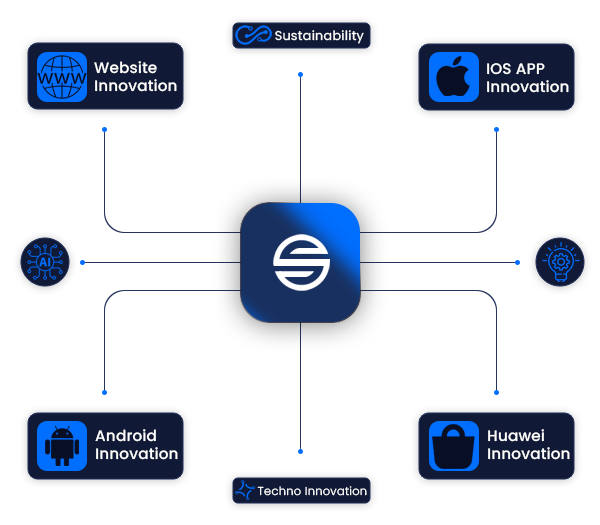Innovation in software means pushing boundaries with technology, solving problems intelligently, and redefining user experience. Future-shaping systems are crafted by creative code. Every line written is a building block of digital transformation and modern technological evolution.


Innovation in software is the application of new ideas, approaches, and technologies to software development processes and resulting products. This can mean more efficient development methods, user-friendly interfaces, new features, or completely groundbreaking software solutions.
Innovation in software is not just about developing new systems; it is about transforming the way we solve problems. Innovative software increases functionality and enhances the user experience. Real success is possible by adapting technology to human needs.
Technologies such as microservices, artificial intelligence, cloud systems are the basis of innovative software. Systems developed with these structures are faster, more flexible, and more scalable than classical solutions. Innovation begins not only in the code; but also in the perspective of the software developer.
Innovative software produces not only products but also visions. Companies that want to lead the sector must go beyond dominating technology; they must direct technology. True leadership in software is possible with a constantly evolving understanding of innovation.
Innovative software development processes are approaches that go beyond traditional methods and encourage creativity, experimentation and rapid learning. Innovative software development processes are approaches that aim to continuously learn and improve in a fast, flexible, user-focused and open-to-experiment environment.
Software processes are no longer limited to coding. Methods such as Agile and DevOps bring collaboration, agility and quality together. Innovative processes make software development more efficient and effective in the rapidly changing digital world.
Continuous integration, test automation, and agile management are approaches that transform software development. Teams working with these methodologies produce more robust software in less time. Quality becomes a discipline driven by innovation.
Innovative development processes not only save time, but also increase product quality, customer satisfaction, and sustainable success. Software teams of the future should aim to continuously improve the process, not just the technology.

Successful software should not only be functional but also user-friendly. User-centered innovation aims to understand needs and produce solutions. The software approach focused on experience provides companies with a great advantage in the digital age where competition is intense.
Feedback, testing, and user behavior analysis are the basic tools for improving the experience. Innovative teams constantly optimize the software. Solutions shaped according to users’ needs increase brand loyalty.
User-centered innovation increases the value of the software. User satisfaction and interaction provide sustainable profits for the brand in the long term. The best software is not only the one that works; it is the one that is in harmony with the human being.
Innovation should consider environmental and technological sustainability together. Efficient software systems reduce resource consumption. Sustainable approaches that benefit both nature and businesses form the basis of responsible development in the digital world.
Energy-friendly infrastructures, low-consumption software architectures and digitalized processes are examples of sustainable innovation. Coding processes become more conscious and reduce carbon footprints. Sustainability is no longer a sectoral preference, it is a necessity.
Sustainable software considers not only the present but also the future. The social and environmental dimensions of innovation should not be forgotten. Producing environmentally sensitive technology increases both the ethical and strategic power of brands.

© 2005 – 2025 Efes Soft All rights reserved.
